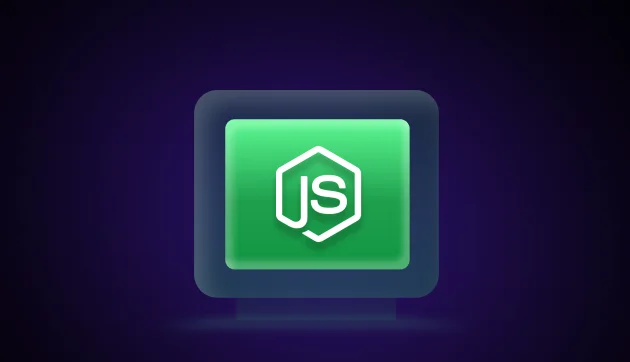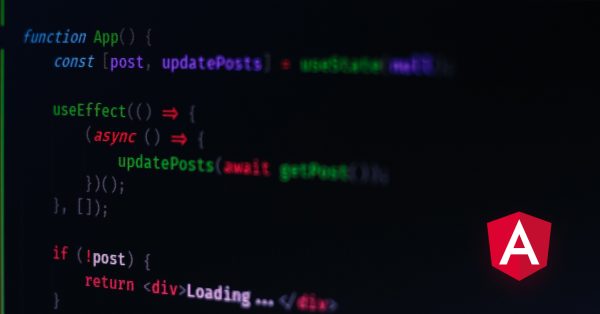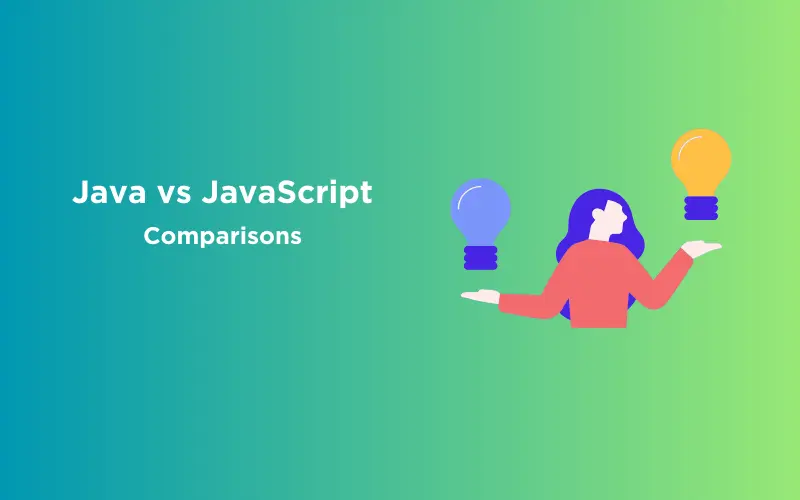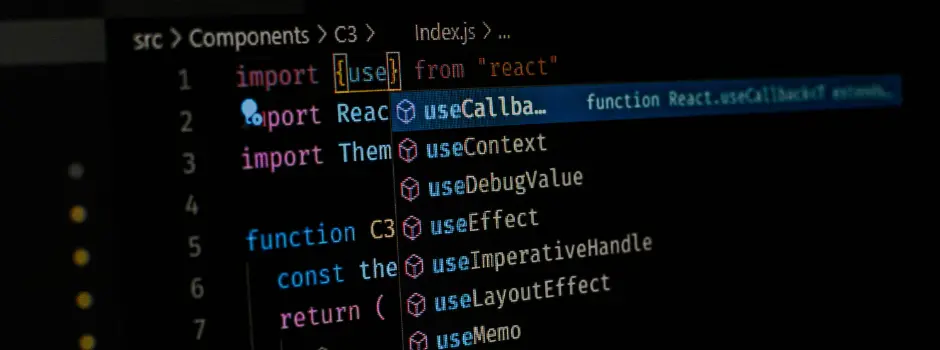
We all know that JavaScript is the most demanding and high-paying programming language in 2025. The major application of JavaScript is for web development. We can build robust web applications quickly. And then comes the JavaScript frameworks which makes the implementation even easier.
In this blog, we’ll be understanding some of the best JavaScript frameworks used by developers in 2025. Also, you’ll read about the features it has that can be used to build scalable web applications efficiently and effectively. Let’s move ahead in this high-demanding and must-read topic.
Table of contents
- What Is a JavaScript Framework?
- Best JavaScript Frameworks in 2025
- React
- Angular
- VueJS
- Node.js
- Express.js
- Ember.js
- Next.js
- BackboneJS
- Meteor.js
- Conclusion
- FAQs
- Q1. Which JavaScript framework is best for 2025?
- Q2. What is the future of JavaScript 2025?
- Q3. Mention some of the best JavaScript frameworks for front-end and back-end development.
What Is a JavaScript Framework?
JavaScript framework is a collection of libraries used to build web applications from zero. It has libraries to build great features for an application. Frameworks are like a set of templates to build certain features of an application.
Instead of building the feature from scratch, you can easily build on top of the already existing structure, which helps developers build even more complex applications faster and more efficiently.
Furthermore, a JavaScript framework is a collection of JavaScript libraries to create pre-written code for everyday programmer tasks.
Before diving into the next section, ensure you’re solid on full-stack development essentials like front-end frameworks, back-end technologies, and database management. If you are looking for a detailed Full Stack Development career program, you can join GUVI’s Full Stack Development Career Program with Placement Assistance. You will be able to master the MERN stack (MongoDB, Express.js, React, Node.js) and build real-life projects.
Additionally, if you want to explore JavaScript through a self-paced course, try GUVI’s JavaScript self-paced certification course.
Best JavaScript Frameworks in 2025
Let’s understand some of the best JavaScript frameworks used by developers in 2025:
1. React

React is one of the best JavaScript frameworks, developed by Facebook. It is an open-source front-end JavaScript library used to build interactive UIs. flexible, requires fewer resources, and can be combined with other libraries when required. React introduced a component-based, functional, and declarative programming style for creating interactive user interfaces for mainly single-page web applications.
It has a strong community of developers and massive industry adoption in various corners of the world. Companies that work on React are Tesla, Uber, Udemy, Airbnb and Twitter. React offers support for server-side rendering, which can improve the performance of web applications by allowing data to be fetched before the view is rendered on the client side.
It makes use of a virtual DOM (Document Object Model), which reduces the time required to re-render the view when the state changes.
Features of React:
- Declarative
- Virtual DOM
- Event handling
- JSX and React Native
- Single-page applications
- Handling the view layer of an app
- Creation of reusable UI components
- Large web applications
2. Angular

Angular, another very popular JavaScript framework, built by Google is an open-source TypeScript-based framework by Google used to build client-side single-page web applications and offers all the necessary features. Having a strong knowledge of Angular helps you to grab great job opportunities and a handsome salary.
The learning curve is quite large and there have been many updates recently since Google launched its first version. It supports both MVC and MVM architecture. More than a million websites are using AngularJS, including Google, Forbes, IBM, and Microsoft.
Features of Angular:
- Single-page applications
- Mobile and web apps
- Large enterprise applications
- Two-way data binding
- Dependency injection
- Directives
- Testing Support
3. VueJS

Vue.js, another highly popular JavaScript framework, is an open-source framework used to build client-side single-page web applications and provides a comprehensive set of features. Gaining proficiency in Vue.js can open doors to rewarding job opportunities with competitive salaries.
Vue.js has gained popularity for its flexibility, developer-friendly approach, and thriving ecosystem of libraries and tools, making it a valuable framework for modern web development.
The framework offers a gentle learning curve, making it accessible to developers of varying skill levels. Vue.js supports the Model-View-ViewModel (MVVM) architecture, emphasizing the separation of concerns in application development. Vue.js is trusted by numerous prominent websites, including Alibaba, Xiaomi, and Xiaomi.
Features of Vue:
- Building UI
- Single-page apps
- Improving existing apps (performance, UI, etc.)
- Complex apps
- Virtual DOM
- Data Binding
- CSS Transitions and Animations
4. Node.js

Node.js, a widely adopted runtime environment for server-side JavaScript, was invented by Ryan Dahl and was initially released in 2009. It has since become a fundamental technology in web development. Node.js, a revolutionary runtime environment for server-side JavaScript, has had a profound impact on modern web development.
What sets Node.js apart is its event-driven, non-blocking I/O architecture, which makes it exceptionally well-suited for handling a large number of concurrent connections efficiently. This architecture allows Node.js to excel in scenarios where real-time data processing and high levels of concurrency are required.
Overall, Node.js offers developers the flexibility and scalability needed to build efficient, real-time, and data-intensive applications, making it a crucial technology in modern software development. Companies like LinkedIn, Trello, NASA, and eBay use NodeJS.
Features of NodeJS:
- Non-blocking I/O
- V8 JavaScript Engine
- NPM (Node Package Manager)
- Thriving Community
5. Express.js
Express.js, invented by TJ Holowaychuk, is an exceptional web application framework for Node.js and boasts a wealth of features that make it a preferred choice for developers seeking to build robust and scalable server-side applications. Developed as an open-source project, Express.js simplifies the process of creating powerful web APIs and web applications with its flexibility and minimal resource requirements.
Express.js, like React in the front end, has garnered immense industry adoption and is trusted by prominent companies worldwide. Its efficient routing, middleware support, and flexibility make it a powerful choice for building a wide range of web applications, from simple APIs to complex, real-time systems. Companies like Paytm, PayPal, and IBM use ExpressJS.
Features of ExpressJS:
- Minimalist and Flexible
- Robust Routing
- Middleware Support
- HTTP Utility Methods
- Built-in Template Engines
- Active Community
- Middleware Ecosystem
- Scalability
You must also know of some of the best Full-stack developer frameworks used by developers in 2025.
6. Ember.js
Ember, again is an open-source JavaScript framework for building scalable single-page web applications and one of the best JavaScript frameworks, developed by Yehuda Katz. Ember is excellent for developing complex apps partly because it is strictly organized. It’s easy to go the wrong way working on an extensive application – too many variables and code can create quite a mess.
It supports Model-View-ViewModel (MVVW) architecture. Major companies like – Microsoft, LinkedIn, Netflix, Twitch, etc. Ember uses a component-based JavaScript framework. Ember.js has a strong emphasis on developer productivity and follows best practices out of the box. It provides a well-defined structure for building ambitious web applications, making it suitable for complex projects.
Features of EmberJS:
- Ease of use
- HTML and CSS features
- Instance initializers
- Routes
- Debugging
- Templating
7. Next.js
Next.js is a popular and powerful open-source framework for building modern web applications with React. It is often referred to as a “React framework” because it extends and simplifies the development experience when using React for building web applications. Next.js is primarily focused on server-rendered and static web applications, providing a robust environment for both.
Next.js has gained popularity for its ability to simplify complex aspects of React development, provide an excellent developer experience, and enhance web application performance through server-side rendering and static site generation. It’s a versatile choice for building various types of web applications, from single-page apps to content-rich websites and e-commerce platforms. Major companies like – Walmart, Apple, Nike, Netflix, and Lyft use NextJS.
Features of Next.js:
- Image Optimization
- TypeScript Support
- Pages
- Supported Browsers
- Layout
8. BackboneJS
Backbone.js is a lightweight JavaScript framework that provides structure and organization to web applications. It was created by Jeremy Ashkenas and released in 2010. While it is not as feature-rich as some of the more modern JavaScript frameworks like React, Angular, or Vue.js, Backbone.js offers a minimalistic and flexible approach to building web applications.
While Backbone.js was popular in the early 2010s and served as a foundational framework for many web applications, the JavaScript ecosystem has evolved since then. Many developers now prefer more feature-rich and modern frameworks that offer better tools for building complex user interfaces and managing state. Companies including Pinterest, Uber, and Reddit use Backbonejs.
Features of Backbone.js:
- Models and Views
- Collections
- Routers
- Events
- RESTful API Integration
- Data Binding
- Flexibility
- Small Size
9. Meteor.js
Meteor, often referred to as Meteor.js, is an open-source JavaScript framework for building real-time web applications. It provides a comprehensive set of tools and libraries for simplifying and accelerating web and mobile app development. Meteor was first released in 2012 and has gained popularity for its ease of use, real-time capabilities, and full-stack development approach.
Meteor is particularly well-suited for building real-time collaborative applications, social networks, chat applications, and other projects that require instant data updates across connected clients. Its simplicity and focus on real-time functionality make it a compelling choice for specific use cases. Companies like Deloitte, NetApp, and Accenture use MeteorJS.
Features of Meteor.js:
- Real-Time Data
- Package System
- Authentication and Authorization
- Reactivity
- Deployment and Hosting
- Community and Packages
If you’re interested in learning JavaScript and want to build a career in it, you must have complete guidance and a roadmap on JavaScript and learn how to start your journey and excel in this highly demanding career.
Kickstart your Full Stack Development journey by enrolling in GUVI’s certified Full Stack Development Career Program with Placement Assistance where you will master the MERN stack (MongoDB, Express.js, React, Node.js) and build interesting real-life projects. This program is crafted by our team of experts to help you upskill and assist you in placements.
Alternatively, if you want to explore JavaScript through a self-paced course, try GUVI’s JavaScript self-paced course.
Conclusion
Choosing the best JavaScript framework out of many is a tedious task, hence these mentioned here are filtered based on their uses and popularity. These frameworks provide the best features and can be used by developers.
You can choose the framework as per your project’s requirements and understand which set of frameworks complements your needs and can deliver the best performance at the lowest development cost and time.
FAQs
Ans. Some of the best JavaScript frameworks used by developers in 2025 are:
1) ReactJS
2) AngularJS
3) VueJS
Ans. JavaScript is and will be the most demanding and high-paying programming language of all. According to several reports, it has great popularity and holds a place in the top programming language. It is the heart of web development.
Ans. Best JavaScript frameworks:
For Front-end Development:
ReactJS
AngularJS
VueJS
For Back-end Development:
ExpressJS
Node.js
Next.js































Did you enjoy this article?